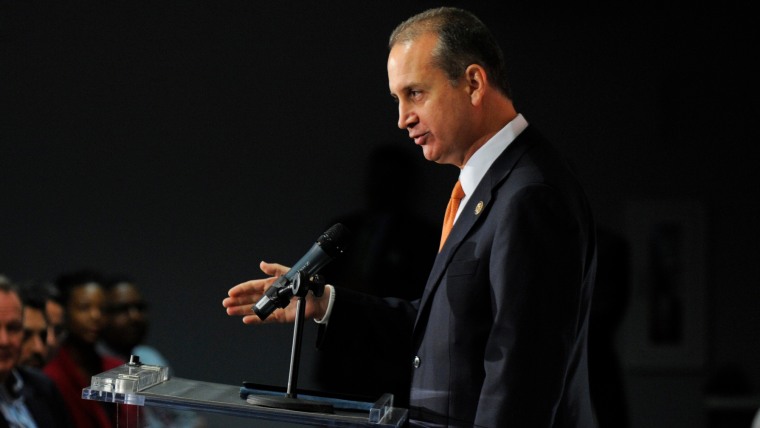Shortly after last week's vote on the Republicans' health care plan, Rep. Mario Diaz-Balart (R-Fla.)
said, "Is this bill good? No, I don't like it."Diaz-Balart, however,
voted for the legislation he doesn't like.Over the weekend, Rep. Justin Amash (R-Mich.), reflecting on the same bill,
conceded, "This is not the bill we promised the American people." Amash
voted for it, too.And on the other end of Pennsylvania Avenue, Donald Trump
hailed the GOP legislation as "a great plan," which was "very, very incredibly well-crafted," and which the Senate should pass right away. At the same time, the White House is telling Congress to fix the badly flawed legislation the president is so excited about.
Politico reports:
The Trump administration ratcheted up the pressure on Senate Republicans on Sunday to solve the policy problems in the House of Representatives' bill repealing Obamacare, urging the upper chamber to improve the bill even while defending its most controversial elements. [...]"The bill that passed out of the House is most likely not going to be the bill that is put in front of the president," Mick Mulvaney, head of the Office of Management and Budget, said Sunday.
A separate
Politico report added the other day that inside the White House, senior administration officials say no one "really loves the legislation," and Trump himself "has expressed misgivings."Hmm. Voters hate the bill. So do Democrats.
So do hospitals, doctors, nurses, insurers, and many consumer groups. House Republicans who voted for it say they don't really like the legislation; Senate Republicans intend to largely ignore it; and Team Trump believes the proposal is so badly flawed, the White House is urging lawmakers to fix it.Given all of this, it's worth pausing to ask why in the world 217 GOP lawmakers voluntarily agreed to pass a monstrosity that no one likes.There are three key angles to keep in mind. The first is that Republicans felt an overwhelming urge to pass
something, even if the bill was obscene, even if the plan wouldn't work, even if the party was breaking many of its own promises, even if no one could honestly defend the proposal on the merits.GOP officials decided they had a box that needed checking, and that mattered more than responsible legislating or protecting Americans' interests.Second, don't underestimate the power of politicians trying to avoid blame. The question hanging over House Republicans in recent weeks wasn't, "What's the best health care policy for the public?" but rather, "Who'll be held responsible if we end up doing nothing?"By passing a bill even they didn't like, GOP lawmakers shifted the burden to the Senate for a while, and I lost count of how many House Republicans said that would make them feel better.And third, let's not forget that congressional Republicans have an unnatural fondness for tax breaks that benefit the wealthy -- and at its core, that's precisely what the American Health Care Act is, The legislation slashes health care benefits and then redistributes the money to the rich in the form of massive tax cuts.Writing in the
New York Times over the weekend, Reason magazine's Peter Suderman, a frequent critic of the Affordable Care Act,
explained the dynamic very well:
It's difficult to understand ... if you think they were passing a health care bill. It makes more sense when you realize that isn't what they were doing at all. They were passing a tax cut -- one intended to pave the way for more tax cuts.The flaws of the bill, then, can be understood as a symptom of the flaws of the Republican Party, which has for decades maintained a myopic focus on tax cuts at the expense of nearly all else. Too often, it is a party of people who seem to confuse governing with cutting taxes.
Why would Republicans support unpopular legislation even they don't like? We shouldn't expect GOP lawmakers to acknowledge their motivations, but just outside the spotlight, their reasons aren't hiding especially well.
